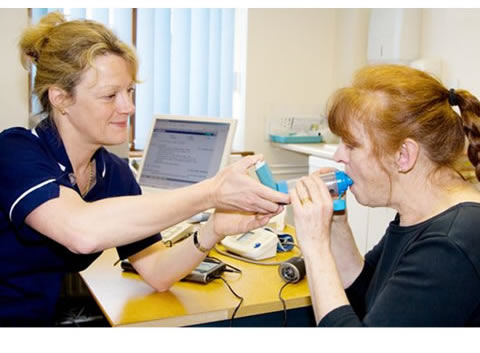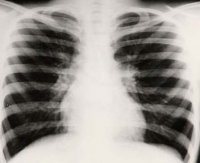Pharmacological and Non-Pharmacological Management of Asthma for Medical Doctors



Description
This session will explore the options associated with the pharmacological and non-pharmacological management of asthma. As a long-term medical condition, ongoing management is the key to asthma control and patient safety.
Learning Objectives
By the end of this session you will be able to:
- Identify methods for assessing inhaler technique and adherence
- Explain the role of non-pharmacological management
- Describe the purpose of regular ongoing treatment in asthma
- List the broad groups of drugs used in the long-term management of asthma and identify examples of each
- Describe the phased approach to managing asthma
This is the third of five related sessions on the impact, diagnosis and management of asthma in adults.
In this session, we will explore the pharmacological and non-pharmacological approaches that can be used to maintain asthma control and ensure patient safety.
Poor control of asthma increases the risk of asthma attacks which are potentially life-threatening.
Before starting this session, you may wish to complete:
- Introduction to Asthma and its Diagnosis (714-1001)
- Overview of Routine Asthma Monitoring (714-1002)
Viv has 25 years’ experience of clinical practice in the NHS in both primary and secondary care and joined Education for Health in 2013 as the Clinical Lead for Asthma and Allergy.
She believes that excellence in education for healthcare professionals is the key to improving health outcomes for people with asthma and allergy. Identifying people with poor disease control and helping them to improve their disease management through shared decision making and action planning is essential if we are to improve quality of life for people with asthma and allergy and prevent avoidable deaths.
In addition to her educational role, Viv also works part time in primary care reviewing and managing patients with respiratory disease.
She has a number of additional professional interests including a role on the editorial board for a nursing journal, writing for publication and is a member of the Asthma UK Council for Health Professionals.
Viv is also on the committee for the National Paediatric Respiratory and Allergy Nurses Group, where she leads on primary care issues, and was a panellist on the National Review of Asthma Deaths.

- Anaesthesia | General ICU Care | An alternative ap...
- Posted By eIntegrity Healthcare e-Learning
- Posted Date: 2024-10-31
- Location:Online
- This session contains a link to the BJA Education article followed by a series of self assessment multiple choice questions.<br><br>The article will open in a new window or tab depending on your browser.<br><br> CPD credits are awarded by the RCoA for the
- Anaesthesia | General ICU Care | ABG interpretatio...
- Posted By eIntegrity Healthcare e-Learning
- Posted Date: 2024-10-31
- Location:Online
- This session covers the interpretation of arterial blood gases and describes common types and causes of metabolic acid-base disturbance.
- Anaesthesia | General ICU Care | ABG interpretatio...
- Posted By eIntegrity Healthcare e-Learning
- Posted Date: 2024-10-31
- Location:Online
- This session gives a brief overview of normal physiological mechanisms regulating body pH, followed by case studies with a particular focus on abnormalities pertaining to the respiratory system.
- Anaesthesia | General ICU Care | Haematological in...
- Posted By eIntegrity Healthcare e-Learning
- Posted Date: 2024-10-31
- Location:Online
- This session describes the haematological investigations commonly used when assessing and managing critically-ill patients.
- Anaesthesia | General ICU Care | Common electrolyt...
- Posted By eIntegrity Healthcare e-Learning
- Posted Date: 2024-10-31
- Location:Online
- This session will discuss the management of critically-ill patients with abnormalities in serum potassium (K+), magnesium (Mg2+) and phosphate (PO42-).







